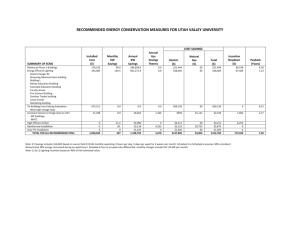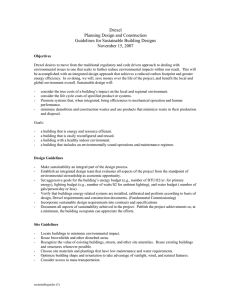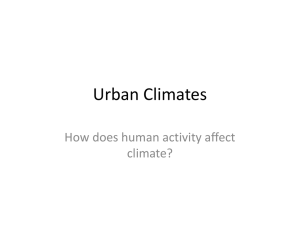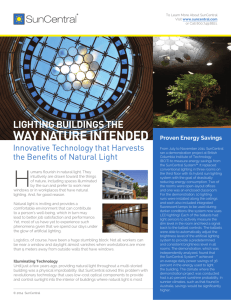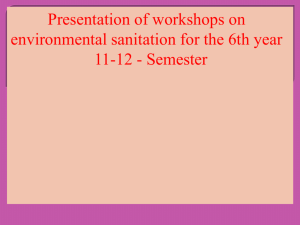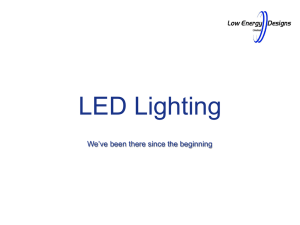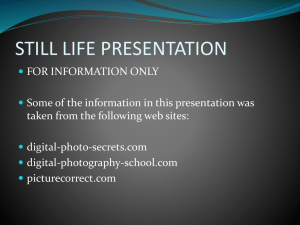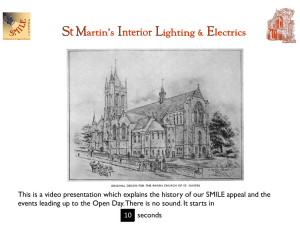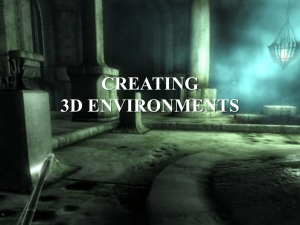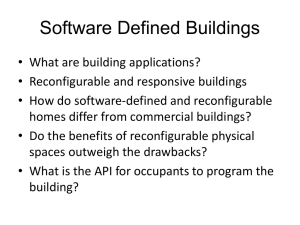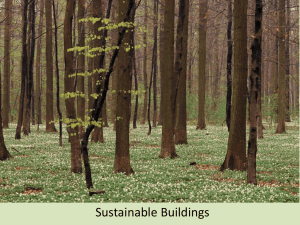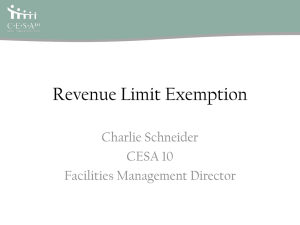BUILDING-SERVICES-20
advertisement
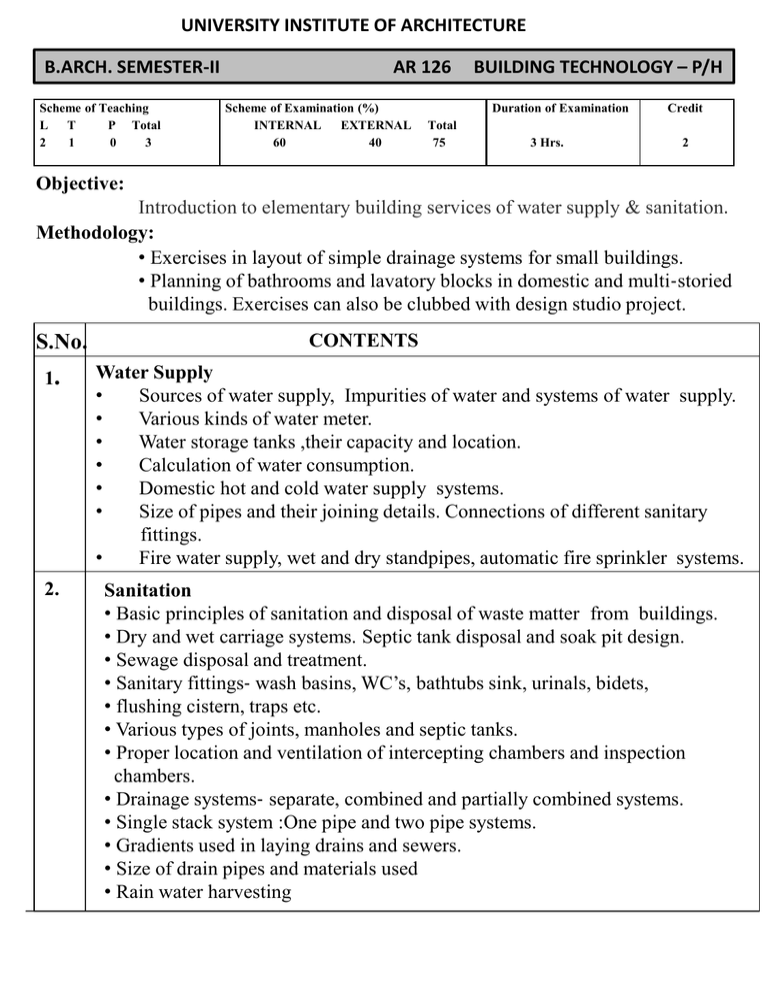
UNIVERSITY INSTITUTE OF ARCHITECTURE B.ARCH. SEMESTER-II Scheme of Teaching L T P Total 2 1 0 3 AR 126 Scheme of Examination (%) INTERNAL EXTERNAL 60 40 BUILDING TECHNOLOGY – P/H Duration of Examination Total 75 3 Hrs. Credit 2 Objective: Introduction to elementary building services of water supply & sanitation. Methodology: • Exercises in layout of simple drainage systems for small buildings. • Planning of bathrooms and lavatory blocks in domestic and multi‐storied buildings. Exercises can also be clubbed with design studio project. S.No. 1. 2. CONTENTS Water Supply • Sources of water supply, Impurities of water and systems of water supply. • Various kinds of water meter. • Water storage tanks ,their capacity and location. • Calculation of water consumption. • Domestic hot and cold water supply systems. • Size of pipes and their joining details. Connections of different sanitary fittings. • Fire water supply, wet and dry standpipes, automatic fire sprinkler systems. Sanitation • Basic principles of sanitation and disposal of waste matter from buildings. • Dry and wet carriage systems. Septic tank disposal and soak pit design. • Sewage disposal and treatment. • Sanitary fittings‐ wash basins, WC’s, bathtubs sink, urinals, bidets, • flushing cistern, traps etc. • Various types of joints, manholes and septic tanks. • Proper location and ventilation of intercepting chambers and inspection chambers. • Drainage systems‐ separate, combined and partially combined systems. • Single stack system :One pipe and two pipe systems. • Gradients used in laying drains and sewers. • Size of drain pipes and materials used • Rain water harvesting Suggested Readings: 1) S.C.Rangwala, “Water Supply and Sanitary Engineering, Charotar Publishing House, Anand 388 601, 2009. 2) Bureau of Indian Standards. 3) Pachauri, A.K., “Water Supply and Sanitary Installations, Design, Construction and Maintenance”, New Age International Ltd. 4) Manas Handbook of Plumbing, Manas Publishers. 5) Manual of Water supply and Treatment, Second Edition, CPHEEO, Ministry of Works and Housing, New Delhi, 1977. 6) Manual on Sewerage and Sewage Treatment, CPHEEO, Ministry of Works and Housing,New Delhi, 1980. Guidelines for the teachers : The study is also to be linked with related field exposure including new materials and systems being adopted for better building services. UNIVERSITY INSTITUTE OF ARCHITECTURE B.ARCH. SEMESTER-III Scheme of Teaching L T P Total 1 1 1 3 Objective: AR 208 BLDG. TECH. SERV.II- ELECT/HVAC Scheme of Examination (%) INTERNAL EXTERNAL 60 40 Duration of Examination Total 75 3 Hrs. Credit 2 . To introduce the schematic layout of simple electrical and air conditioning Methodology: Lectures and studio exercises. Exercises can be clubbed with design studio project. S.No. 1. 2. CONTENTS Electrical Services • Introduction to electrical energy, basic definitions and related theorems to understand distribution of electrical energy • Assessment of electricity requirements in buildings, study of fittings and accessories used in electrical system • Systematic diagrams for electricity distribution, different types of wiring, various circuit diagrams for bedroom lighting, staircase lighting etc. • Internal and external illumination- definitions, direct, indirect and semi-direct lighting, types of luminaries, reflectors, application of lighting study for street lighting, factory lighting domestic and commercial buildings • Study of electrical services for special buildings like exhibitions, cinemas, stadium etc. Air Conditioning • Introduction of mechanical services, its internal and external components, their functions and principles of air cooling & airconditioning. • Air- conditioning methods , equipments and ducting: their space requirements and placements. Suggested Readings : 1. V.K. Jain, Handbook of Designing and Installation of Services in Building Complex, Khanna Publisher, New Delhi, 1998. 2. J.B. Gupta, Electrical Installation, Estimating and Costing.,S.K. Kataria & Sons, New Delhi , 2002. 3. Mark J Hammer,“Water-supply and Pollution-control” Prentice-Hall HigherEducation, 2008. Guidelines for the teachers : Students should be given Hands- on experience at site.
